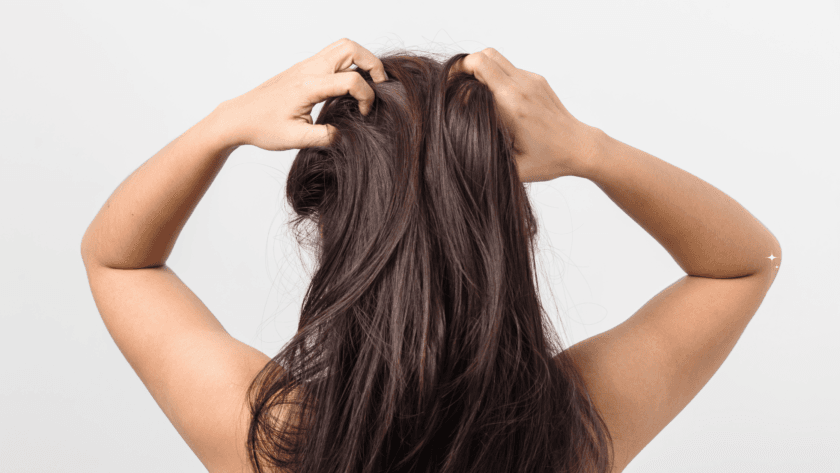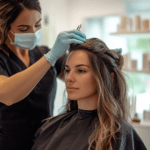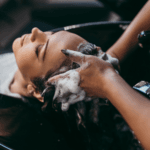An itchy scalp is a common yet frustrating condition that affects people of all ages. Medically known as pruritus, it’s characterized by an irritating sensation that makes you want to scratch your head. While the occasional itch is harmless, a persistent or severe itchy scalp can signal an underlying issue. Understanding the causes, symptoms, and treatments can help you find relief and restore scalp health.
Contents
What Is an Itchy Scalp?
An itchy scalp is an uncomfortable sensation caused by irritation of the skin on your head. It can occur due to a variety of reasons, ranging from dry skin and dandruff to more serious conditions like psoriasis or infections. The itch can be mild or intense, and in some cases, it may disrupt daily activities or even affect sleep.
Symptoms of an Itchy Scalp
The symptoms of an itchy scalp vary depending on the underlying cause. Common signs include:
- Flaky skin: Visible white flakes, often due to dandruff.
- Dry or oily skin: A dry scalp feels tight, while an oily scalp may look greasy and feel slick.
- Inflammation: Redness, swelling, or warmth in the affected areas.
- Raised or bumpy skin: Small bumps or lesions that may accompany the itch.
If left untreated, scratching can lead to open sores, infections, or hair loss, further exacerbating the problem.
What Causes an Itchy Scalp?
An itchy scalp can be frustrating, but understanding the root cause can help you find effective solutions. Here are five common reasons for scalp itchiness:
Dryness and Dehydration
A dry scalp lacks sufficient moisture, often leading to itchiness. This can be caused by over-washing, harsh shampoos, or exposure to cold, dry weather. Common causes include:
- Cold Weather: Low humidity in winter can dry out your scalp.
- Overwashing with Harsh Shampoos: Frequent washing strips natural oils, leaving your scalp dehydrated.

Dandruff and Seborrheic Dermatitis
Dandruff is a mild form of seborrheic dermatitis that occurs in areas with high oil production, such as the scalp. It is characterized by white flakes, persistent itching, and sometimes redness and irritation.
- Flaking: White or yellow scales on the scalp.
- Persistent Itching: Irritation caused by inflammation.
Allergies or Sensitivities
Hair products like shampoos, conditioners, and dyes can contain allergens or irritants. An allergic reaction may result in itching, redness, and rashes.
- Fragrances: A common cause of sensitivity.
- Sulfates and Parabens: Chemicals that can lead to dryness, itching, and irritation.
Scalp Psoriasis
Psoriasis is an autoimmune condition that causes thick, scaly plaques on the skin, including the scalp. These patches are often red or silvery-white and can be intensely itchy.
- Red, Inflamed Patches: Often painful or itchy.
- Silvery Scales: Buildup that can flake and worsen irritation.
Head Lice
Head lice are tiny insects that infest the scalp and feed on blood, causing intense itching. They spread through close contact or sharing personal items like combs or hats.
- Bites: Lice feed on scalp blood, causing small allergic reactions.
- Movement: The sensation of lice moving causes further discomfort.
Eczema (Atopic Dermatitis)
Eczema on the scalp leads to dry, inflamed, and itchy skin. It can be triggered by irritants, allergens, or stress.
Fungal Infections (Tinea Capitis)
Also known as scalp ringworm, this fungal infection causes intense itching, hair loss, and pus-filled bumps. It’s highly contagious and requires medical treatment.
Hives
Hives are red, itchy welts that can appear suddenly on the scalp due to allergens, stress, or medications.
When to See a Doctor
While mild itching can often be managed at home, you should consult a doctor if:
- The itching persists despite treatment.
- There’s severe redness, swelling, or pain.
- You notice pus, bleeding, or crusting on your scalp.
- The itching is accompanied by hair loss or fever.
Diagnosing an Itchy Scalp
To diagnose the cause of your itchy scalp, your doctor will ask about your symptoms, medical history, and hair care routine. They may also:
- Examine your scalp.
- Take a skin scraping or biopsy.
- Collect a sample of hair for analysis.
These tests help identify conditions like fungal infections, psoriasis, or allergic reactions.
Effective Treatments for Itchy Scalp
Treatment depends on the cause of your itchy scalp. Here are some common approaches:
Over-the-Counter Shampoos
- Anti-dandruff shampoos: Contain ingredients like zinc pyrithione, selenium sulfide, or ketoconazole to combat dandruff and seborrheic dermatitis.
- Moisturizing shampoos: Help relieve dryness and restore scalp hydration.
- Psoriasis shampoos: Contain salicylic acid or coal tar to reduce scaling and itchiness.
Prescription Medications
For severe or persistent cases, a doctor may prescribe:
- Topical corticosteroids: To reduce inflammation and itching.
- Antifungal medications: For treating scalp ringworm or seborrheic dermatitis.
- Oral medications: For conditions like psoriasis or fungal infections.
Lice Treatment
Getting rid of head lice involves:
- Using medicated shampoos or lotions.
- Regularly combing out lice and nits with a fine-tooth comb.
- Washing bedding and personal items in hot water.
Moisturizing Creams and Ointments
Products with soothing ingredients like aloe vera, coconut oil, or oatmeal can help alleviate dry and itchy scalp.
Allergy Management
If a hair product is causing irritation, stop using it immediately. Your doctor may recommend antihistamines or patch testing to identify allergens.
Home Remedies for Itchy Scalp
In addition to medical treatments, some natural remedies can provide relief:
- Coconut Oil: Apply coconut oil to moisturize and soothe dry or inflamed skin.
- Tea Tree Oil: Dilute tea tree oil with a carrier oil and apply it to the scalp for its antifungal and anti-inflammatory properties.
- Apple Cider Vinegar: Mix with water and rinse your scalp to balance pH levels and reduce itchiness.
- Aloe Vera: Apply aloe vera gel to cool and hydrate the scalp.
Preventing Itchy Scalp
Prevention is often easier than treatment. Here’s how you can avoid itchy scalp conditions:
- Maintain Good Hygiene
- Wash your hair regularly but avoid over-washing.
- Use gentle, sulfate-free shampoos that match your hair type.
- Avoid Triggers
- Identify and avoid allergens or irritants in hair products.
- Protect your scalp from excessive sun exposure.
- Keep Your Scalp Moisturized
- Use hydrating shampoos and conditioners.
- Avoid hot showers, which can strip natural oils.
- Prevent Head Lice
- Tie back long hair, especially for children in school.
- Avoid sharing personal items like brushes or hats.
- Manage Stress
- Practice relaxation techniques like yoga or meditation.
- Stress can worsen conditions like eczema and psoriasis.
Complications of Untreated Itchy Scalp
Ignoring an itchy scalp can lead to complications such as:
- Hair loss: Due to scratching or underlying conditions.
- Skin infections: Caused by bacteria entering through broken skin.
- Sleep disturbances: Persistent itching can disrupt your rest.
- Emotional distress: Chronic scalp issues may impact self-esteem and confidence.
Conclusion
An itchy scalp can range from a minor annoyance to a sign of a more serious condition. Identifying the cause and seeking appropriate treatment is essential for relief. Whether it’s dandruff, an allergic reaction, or a fungal infection, there are plenty of effective solutions available. If over-the-counter treatments don’t help, consult a doctor or dermatologist for tailored advice. With the right approach, you can restore your scalp health and say goodbye to the itch.



